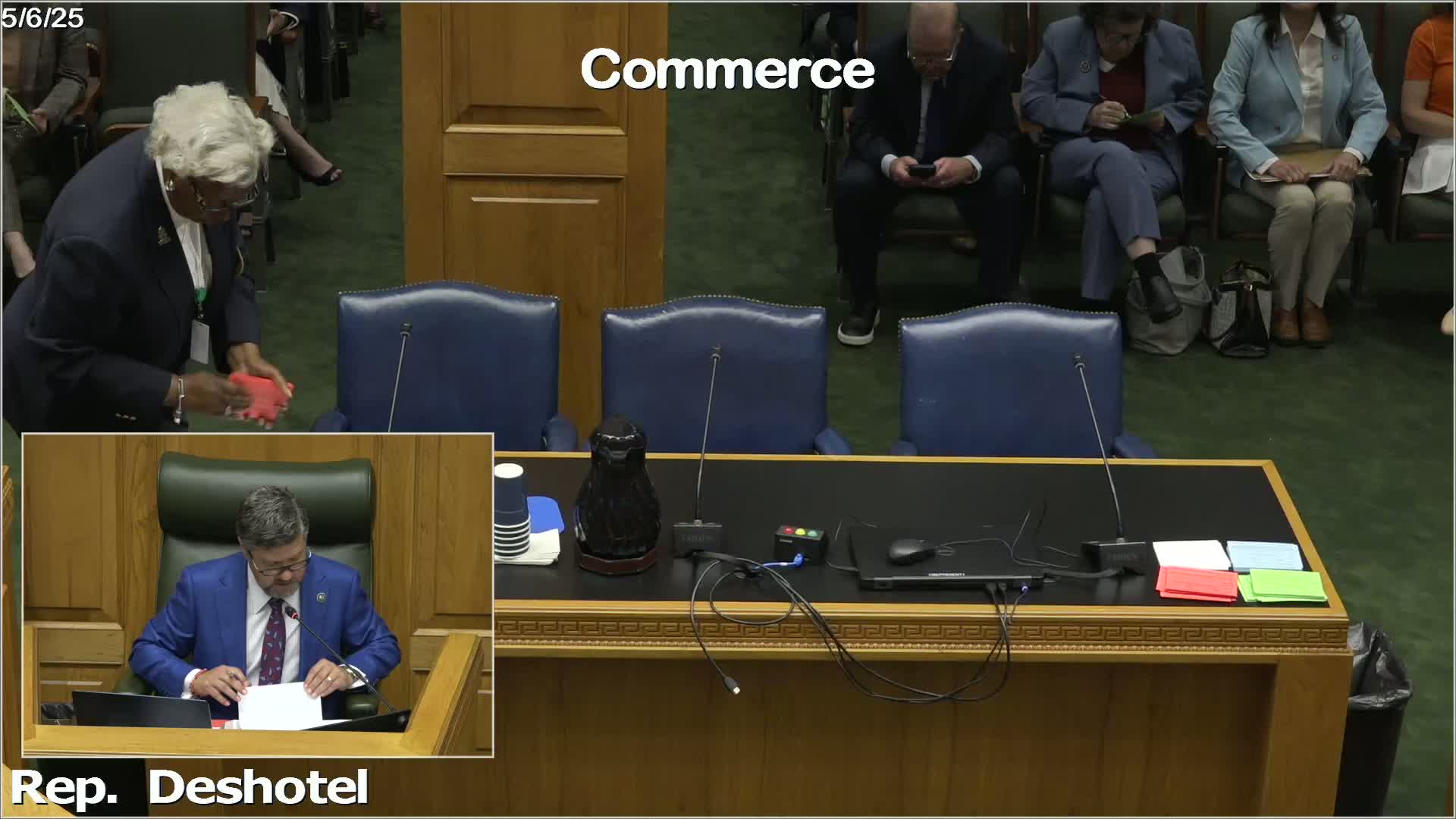Article not found
This article is no longer available. But don't worry—we've gathered other articles that discuss the same topic.
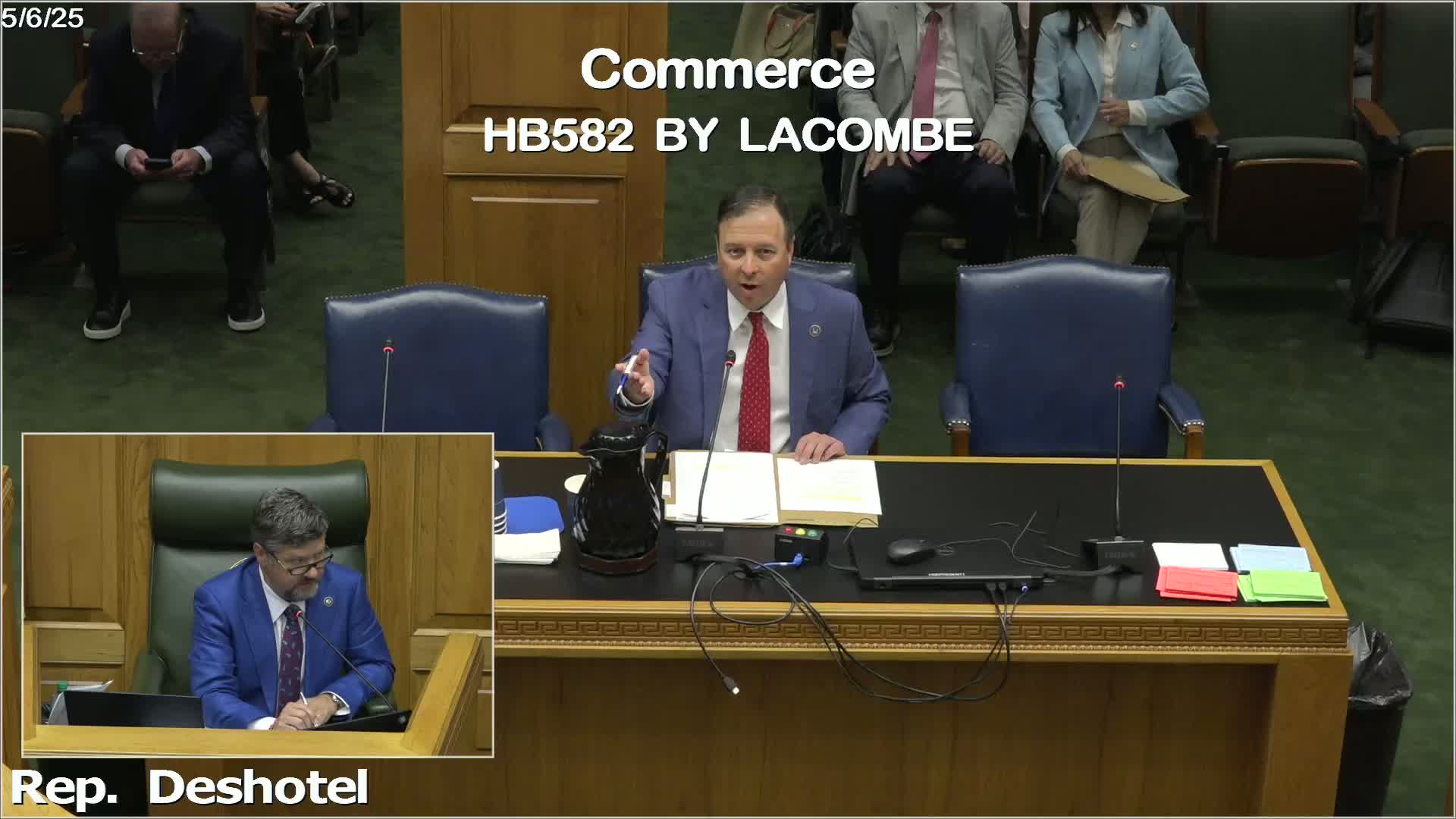
Broadband oversight bill amended, fails on tie vote and is voluntarily deferred for more work
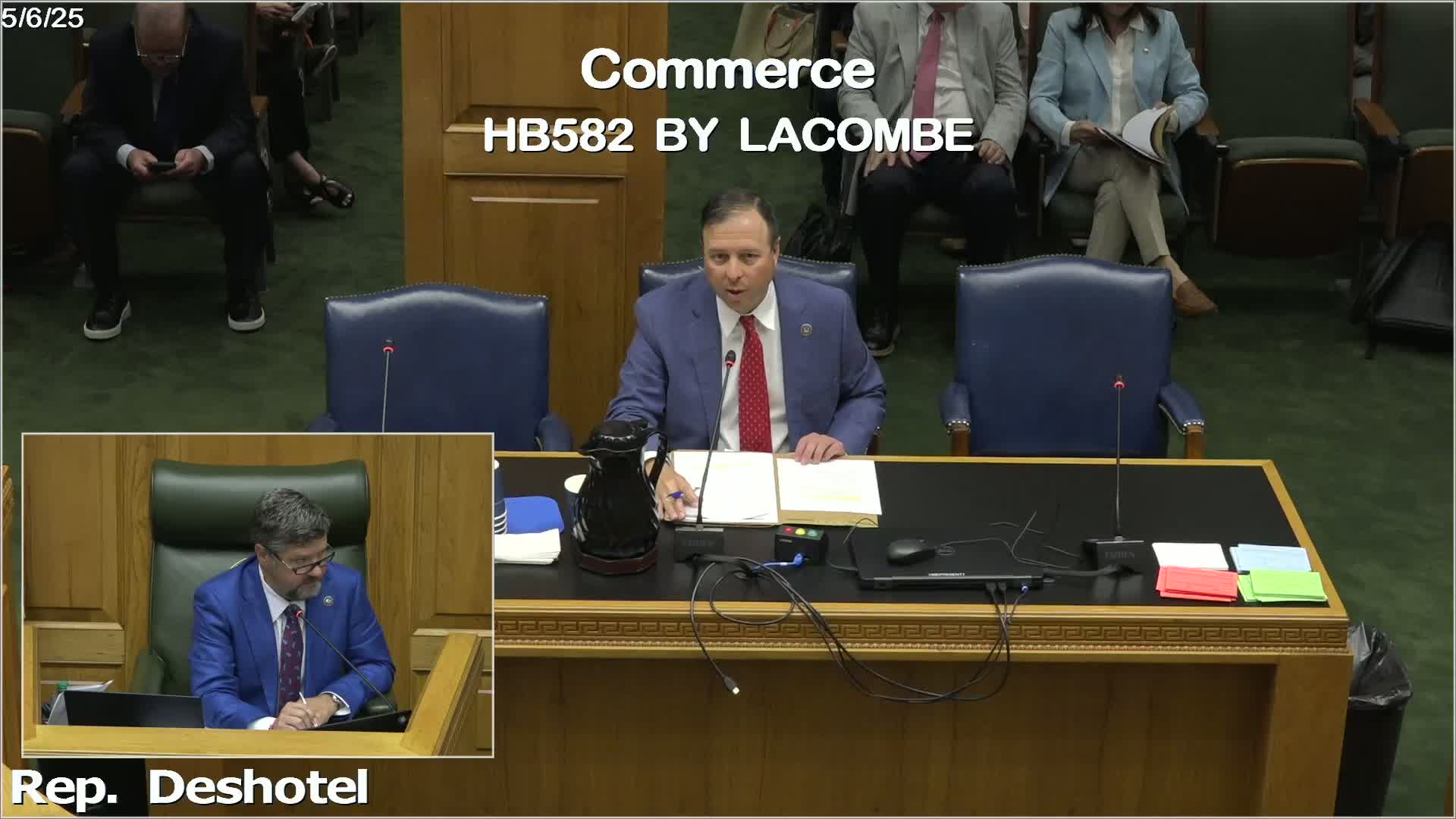
Committee moves version of Consumer Alternative Installment Act with reporting and credit protections
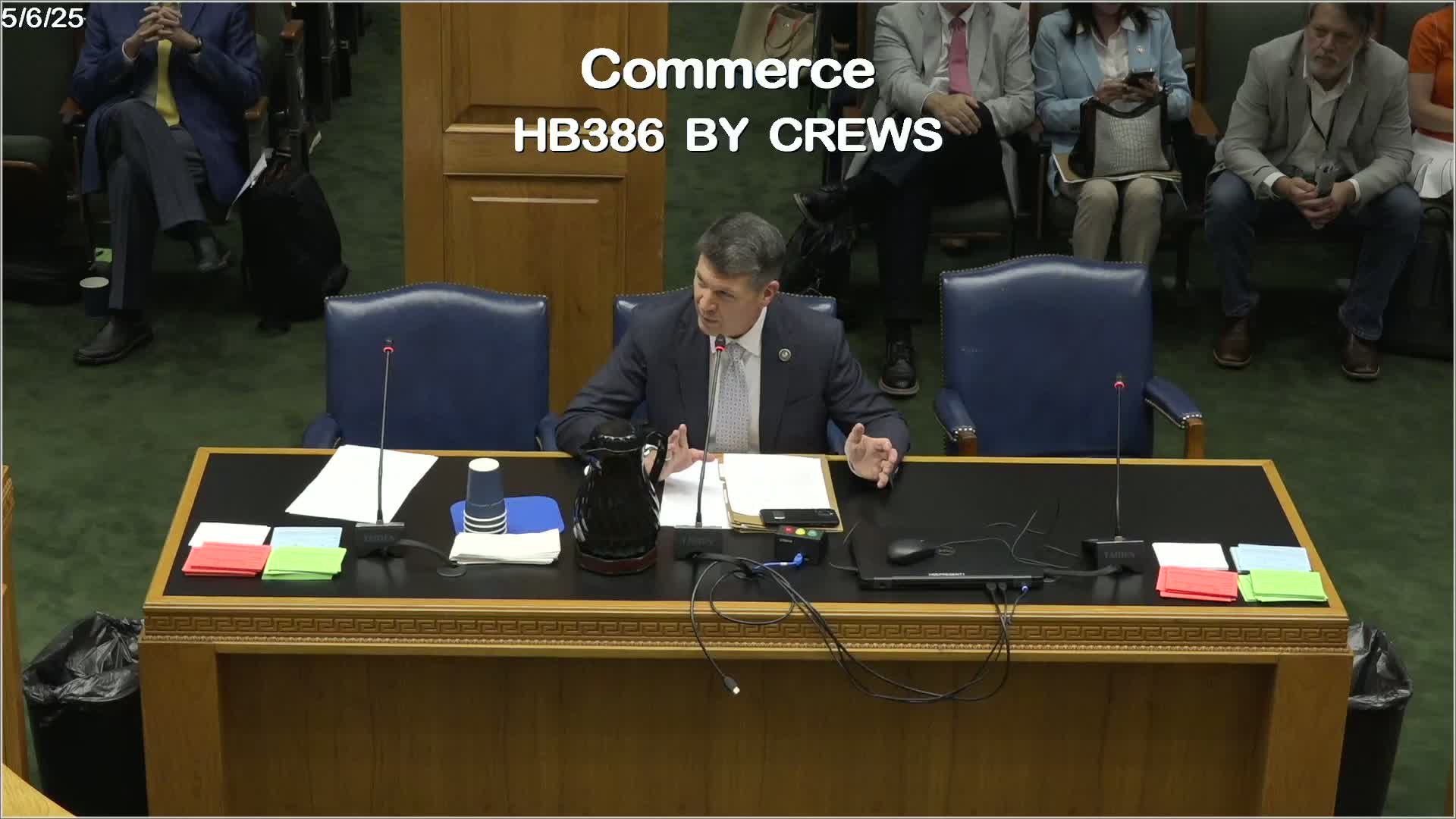
House panel backs bill defining revenue‑based financing for small business
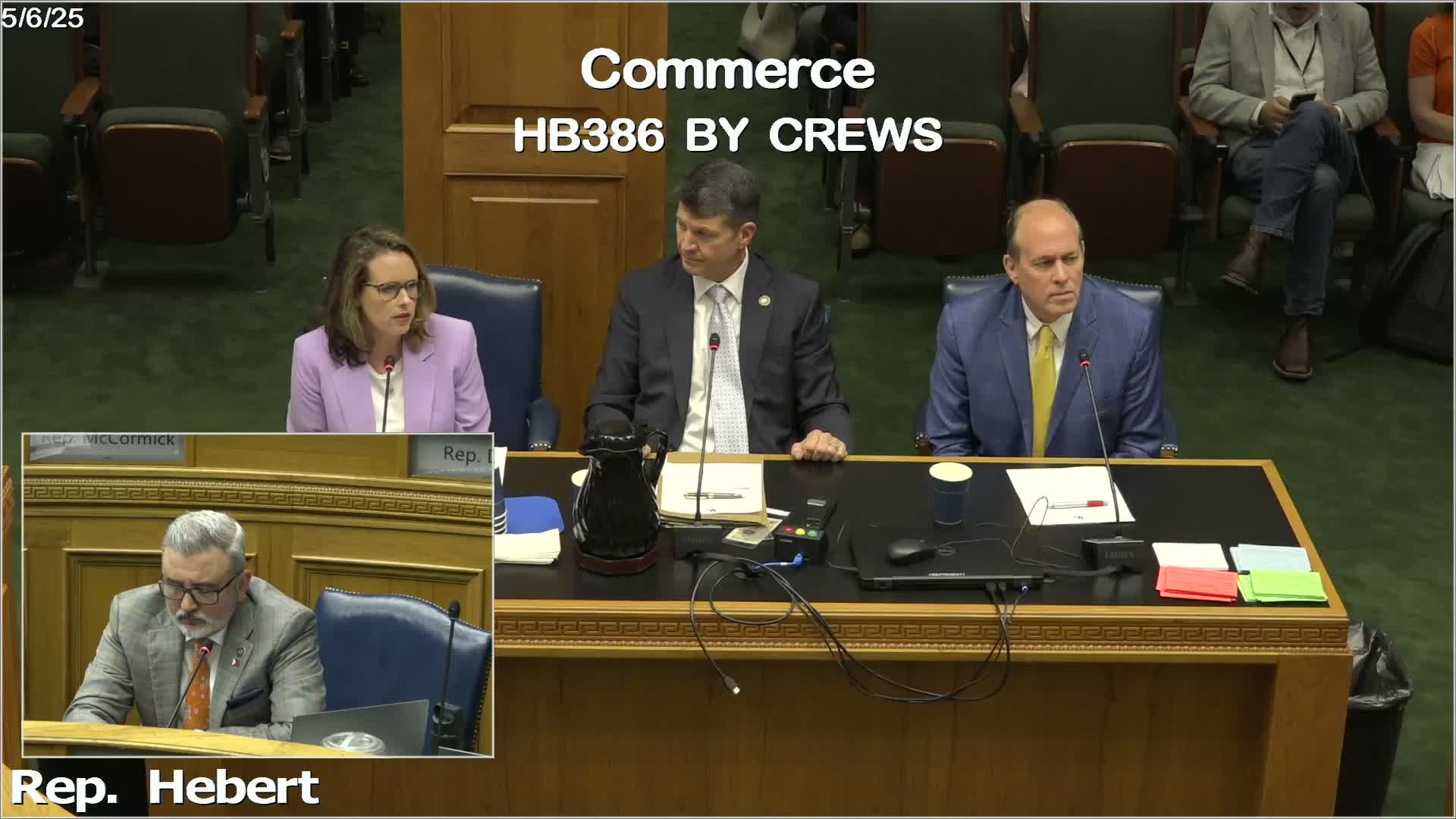
Panel raises payday loan cap, adds CPI indexing and blocks negative credit reporting for small loans
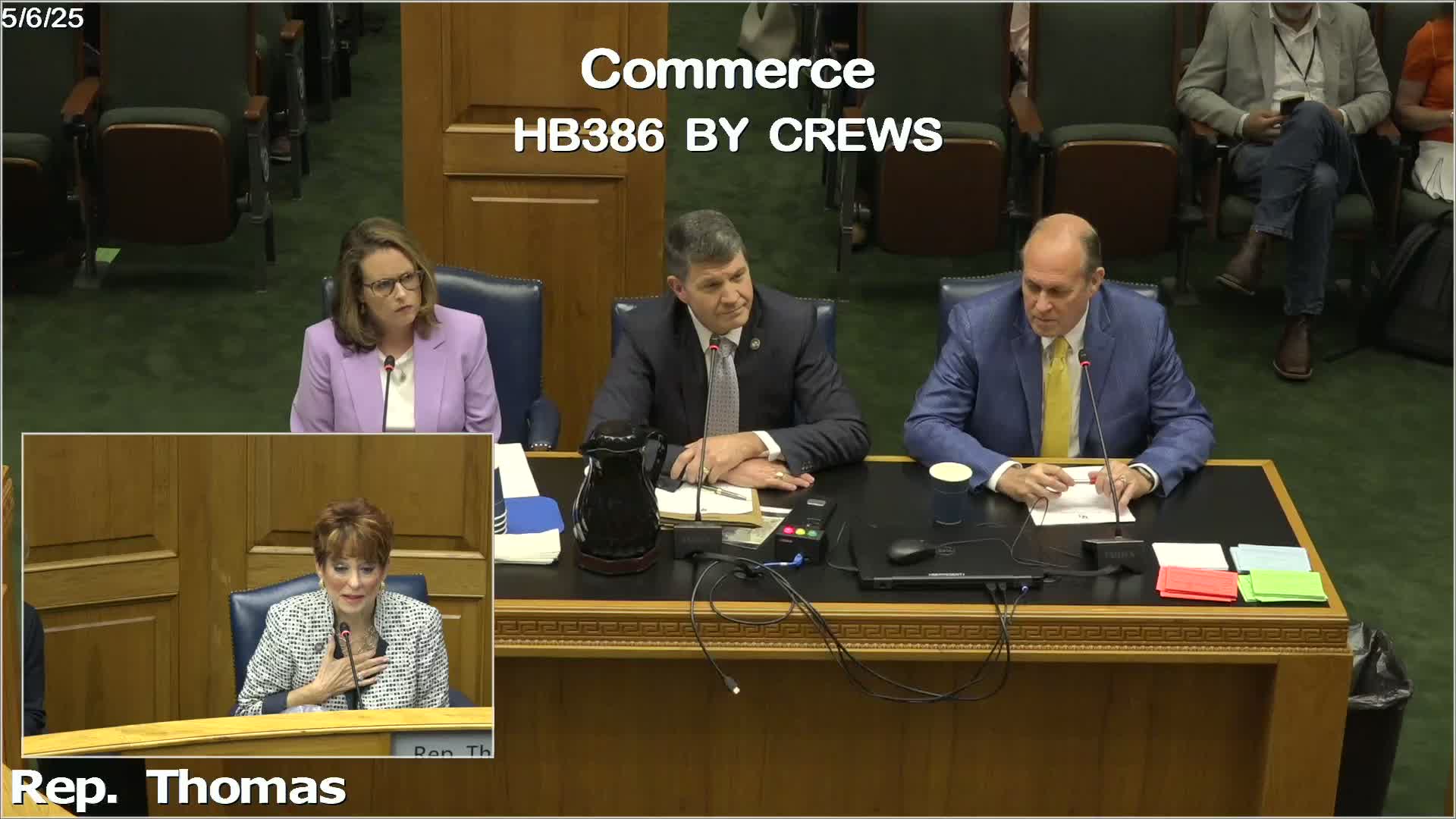
Panel adopts limits on use of certain foreign‑made genetic sequencers and software; AG given enforcement power
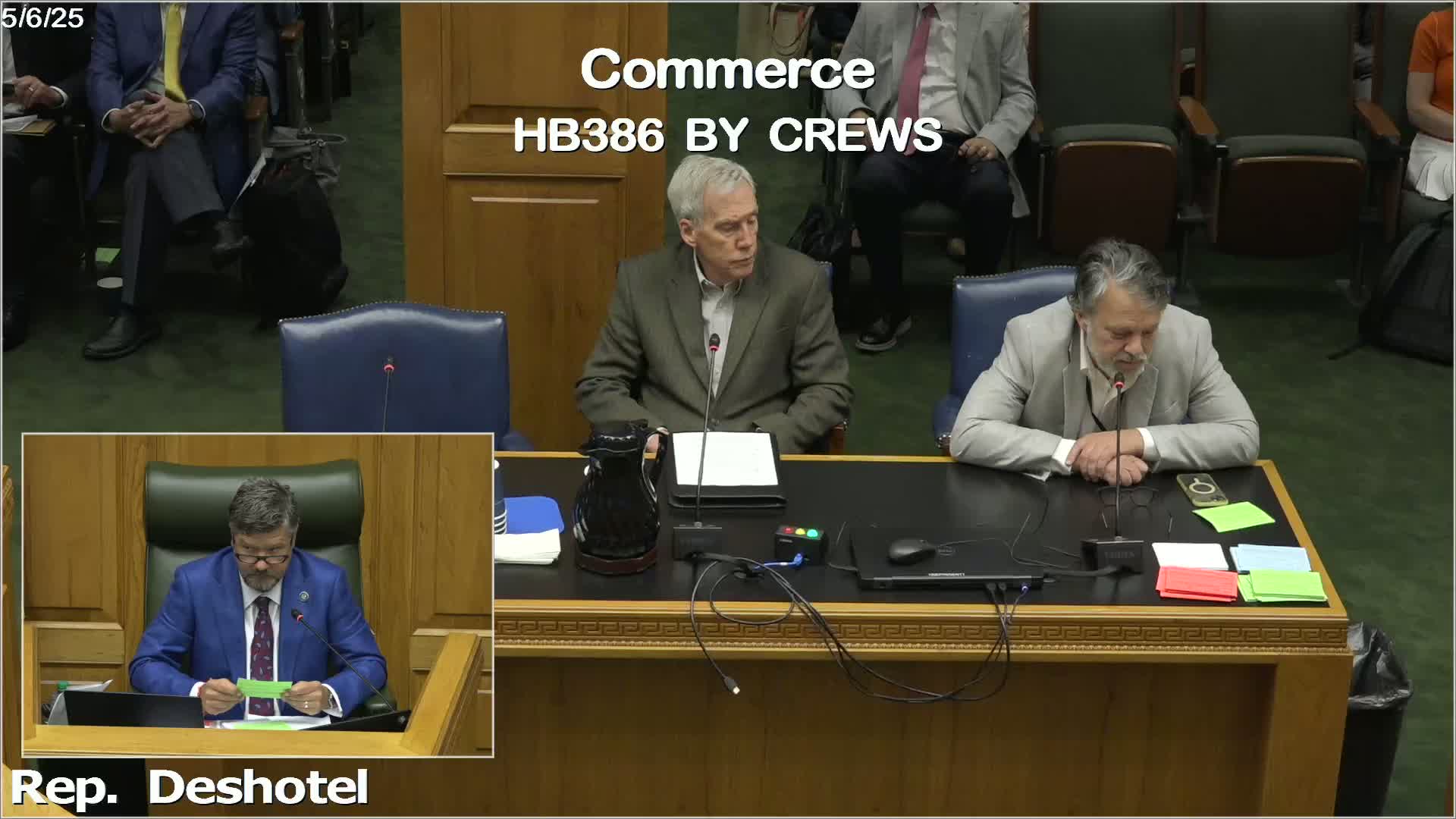
Committee adopts consumer safeguards for crypto kiosks, limits some transactions and imposes hold period
